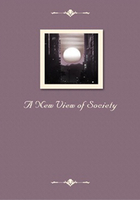
第13章
and every countenance was given to truth and open conduct.The pleasure and substantial advantages derived from the latter soon overcame the impolicy,error,and consequent misery,which the former mode of acting had created.
Dissensions and quarrels were undermined by analagous expedients.When they could not be readily adjusted between the parties themselves,they were stated to the manager;and as in such cases both disputants were usually more or less in the wrong,that wrong was in as few words as possible explained,forgiveness and friendship recommended,and one simple and easily remembered precept inculcated,as the most valuable rule for their whole conduct,and the advantages of which they would experience every moment of their lives;viz.-'That in future they should endeavour to use the same active exertions to make each other happy and comfortable,as they had hitherto done to make each other miserable;and by carrying this short memorandum in their mind,and applying it on all occasions,they would soon render that place a paradise,which,from the most mistaken principle of action,they now made the abode of misery.'The experiment was tried:the parties enjoyed the gratification of this new mode of conduct;references rapidly subsided;and now serious differences are scarcely known.
Considerable jealousies also existed on account of one religious sect possessing a decided preference over the others.
This was corrected by discontinuing that preference,and by giving a uniform encouragement to those who conducted themselves well among all the various religious persuasions;by recommending the same consideration to be shown to the conscientious opinions of each sect,on the ground that all must believe the particular doctrines which they had been taught,and consequently that all were in that respect upon an equal footing,nor was it possible yet to say which was right or wrong.It was likewise inculcated that all should attend to the essence of religion,and not act as the world was now taught and trained to do;that is,to overlook the substance and essence of religion,and devote their talents,time,and money,to that which is far worse than its shadow,sectarianism;another term for something very injurious to society,and very absurd,which one or other well-meaning enthusiast has added to true religion,which,without these defects,would soon form those characters which every wise and good man is anxious to see.
Such statements and conduct arrested sectarian animosity and ignorant intolerance;each retains full liberty of conscience,and in consequence each partakes of the sincere friendship of many sects instead of one.They act with cordiality together in the same departments and pursuits,and associate as though the whole community were not of different sectarian persuasions;and not one evil ensues.
The same principles were applied to correct the irregular intercourse of the sexes:such conduct was discountenanced and held in disgrace;fines were levied upon both parties for the use of the support fund of the community.(This fund arose from each individual contributing one sixtieth part of their wages,which,under their management,was applied to support the sick,and injured by accident,and the aged.)But because they had once unfortunately offended against the established laws and customs of society,they were not forced to become vicious,abandoned,and miserable;the door was left open for them to return to the comforts of kind friends and respected acquaintances;and,beyond any previous expectation,the evil became greatly diminished.
The system of receiving apprentices from public charities was abolished;permanent settlers with large families were encouraged,and comfortable houses were built for their accommodation.
The practice of employing children in the mills,of six,seven and eight years of age,was discontinued,and their parents advised to allow them to acquire health and education until they were ten,years old.It may be remarked,that even this age is too early to keep them at constant employment in manufactories,from six in the morning to seven in the evening.Far better would it be for the children,their parents,and for society,that the first should not commence employment until they attain the age of twelve,when their education might be finished,and their bodies would be more competent to undergo the fatigue and exertions required of them.When parents can be trained to afford this additional time to their children without inconvenience,they will,of course,adopt the practice now recommended.
The children were taught reading,writing,and arithmetic,during five years,that is,from five to ten,in the village school,without expense to their parents.All the modern improvements in education have been adopted,or are in process of adoption.(To avoid the inconveniences which must ever arise from the introduction of a particular creed into a school,the children are taught to read in such books as inculcate those precepts of the Christian religion,which are common to all denominations.)They may therefore be taught and well-trained before they engage in any regular employment.Another important consideration is,that all their instruction is rendered a pleasure and delight to them;they are much more anxious for the hour of school-time to arrive than to end;they therefore make a rapid progress;and it may be safely asserted,that if they shall not be trained to form such characters as may be most desired,the fault will not proceed from the children;the cause will be in the want of a true knowledge of human nature in those who have the management of them and their parents.
During the period that these changes were going forward,attention was given to the domestic arrangements of the community.